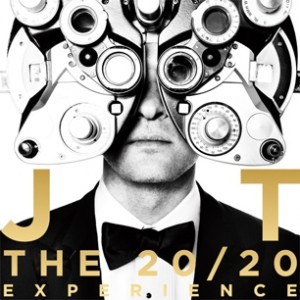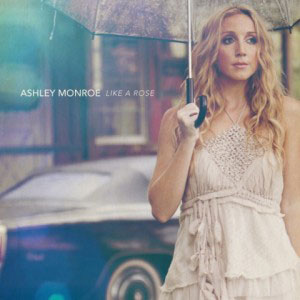Conversations on Context: Letting Loose on Lyrics

 |
| “The 20/20 Experience” Album Art (Photo Cit. RollingStone.com) |
This week, two new albums hit the social media sphere and got people talking, praising, critiquing and criticizing. Justin Timberlake’s upcoming album, “The 20/20 Experience,” which isn’t officially out until the 19th but, is currently available for streaming on iTunes and “Like a Rose” by Pistol Annies singer-gone-solo, Ashley Monroe.
These two artists and albums couldn’t be further apart from each other in sound, audience and style but where the two do cross paths engineers quite the potential for substantial discussion, given what people have to say about each of them separately.
 |
| “Like a Rose” Album Art (Photo Cit. tasteofcountry.com) |
Earlier in the week, Fluxblog creator and BuzzFeed Music staff writer, Matthew Perpetua had started a branch conversation on “20/20” that included him posing a question about Timberlake’s numerous and overt references to drugs –particularly heard on the starter track, “Pusher Love Girl,”
“What do you all think about all the references to drugs on the record? There is something about it that seems…a little too eager to seem cool, maybe.”
Simply type in “#JustinTimberlake” or “#2020experience” in Twitter’s search function and opinions about the album as a whole, will flood your screen. The consensus thus far seems to include a good portion of listeners coming away with descriptors like, “trying too hard,” “adult,” “sophisticated” and “complex” among others. Mention of things like MDMA, cocaine, hydroponics and other thematically connected terms are surprising and yet not, due in part to the nature of where many envision this record being played, as well as the slick, high-class imagery it irrefutably displays, such as in the lead single “Suit and Tie.”
It has been stated in spades by the listening public, that these metaphors are likely Timberlake’s route of choice to describe his feelings on his new married love / new role as a husband / whatever else may fall under that same umbrella of feeling. That said, people can at the very least, understand the point he trying to make about extreme fixation. Nonetheless, there are others that see such verbiage as overly dramatic and sleazy if he’s trying to be classy and “adult.”
Ashley Monroe on the other hand, is presenting a work so staunchly in the traditional country vein, that seeing a track titled “Weed Instead of Roses” in the lineup, inspires less of an individual conversation about controversy or disapproval and more praise for her strong execution in stylistic purity despite her young age –something alluded to in the NPR piece recently posted about the record. The album runs the spectrum of emotions from cheery, to heartbroken to a little reckless and even a touch wild, knowing that love, spite, smoking and drinking are never out of the lyrical realm of possibility if one is playing and writing to the country right. Mildly clever play on theme and words for Ms. Monroe but the title refers to exactly what it implies: marijuana. Take a listen:
Here, unlike with Timberlake, the clear drug/risque behavior references don’t leave the same bad taste of, “I’m trying to hard to be adult and it’s coming off as being a dirty, drug-addict.” This is possibly due to the “mentality” offered by the instrumental melody placed behind Monroe, which plays with honky-tonk style casually and lightheartedly, as opposed to the more serious and heavy-handed nature of Timberlake’s love proclamation. Monroe’s emotional intent is affirmed with an added explanation from her own mouth, as well as that of co-producer Vince Gill, emphasizing “Weed” as a song intended to be satirical and humorous.
Do we become biased, not only by a genre’s history of subject matter and sub-culture, but also biased by the nature of the instrumental setting in which any and all words are placed?
Is the intended funny mood all that is necessary to “excuse” Monroe’s equally blatant drug references?Are positive or negative feelings affected, due to the fact that Timberlake is imprinting his metaphors onto a specific person, while Monroe uses them as more as just a “lyrical support tool” to establish and steer direction? Is this just a matter of genres having different qualifiers for when and how the artists therein are colored as hitting different creative stages?
For example, when, (in an artist’s career) and how, country music sees a country artist trying to “go adult,” might be different than that of pop-rock, R&B, rap or any other style. Some critics or even other members of an artist’s same genre might deem that artist as changing image with the introduction of new compositional decisions (there’s no denying that Timberlake’s song forms are of a more “grown up” style than your basic cookie-cutter pre-teen pop hit.) or they might concur change with an artist altering dress and lyrical content.
I know it isn’t typical of me to end with so much open thought but for this, I don’t have the answers –or even thoughtfully postulated theories. My questions might as well be my answers on the subject.
How Timberlake has framed his entire new record, as well as himself in reality among the public, to me, greatly slants how his content is viewed. Whether this is fair or not -that’s what I want to know…
Let’s talk!




Leave a Reply